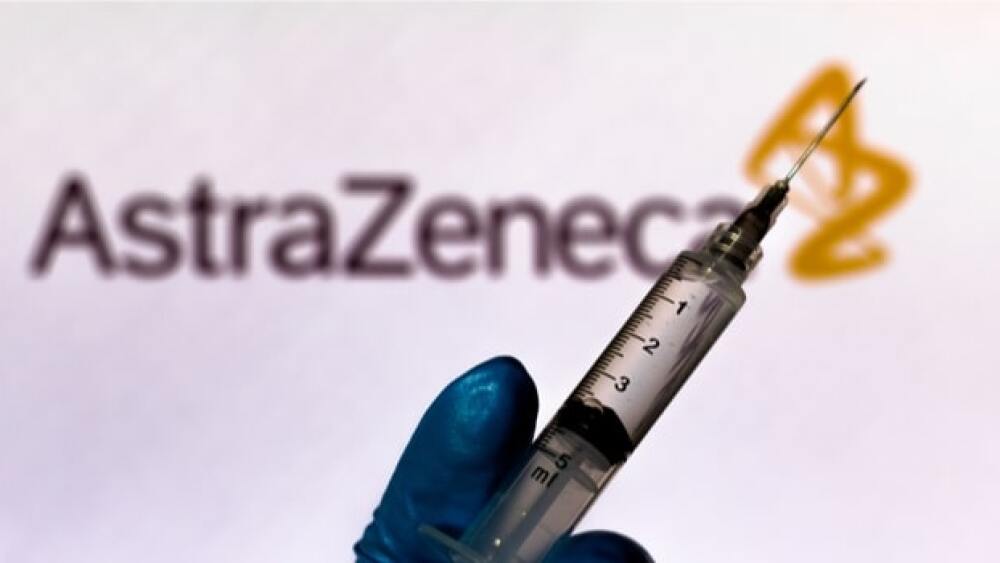AstraZeneca said in an earnings announcement on Thursday it will seek authorization for its COVID-19 vaccine in the U.S. sometime in the second half of this year.
rafapress / Shutterstock
AstraZeneca said in an earnings announcement on Thursday it will seek authorization for its COVID-19 vaccine in the U.S. sometime in the second half of this year. The news provides a more clarified timeline for the delayed vaccine application, which had previously been set to be submitted to the U.S. Food and Drug Administration in April.
During the earnings call, the company also showed it and its sub-licensees have so far delivered over 700 million doses of its COVID-19 vaccine to more than 170 countries in the first half of 2021. This number also includes up to 80 million doses for the COVAX initiative geared toward low- and middle-income nations. The World Health Organization, European Union and the U.K. have already authorized the AstraZeneca COVID-19 vaccine.
The first-half revenue for AstraZeneca totaled $1.169 million from the worldwide deliveries of 319 million vaccine doses supplied by the company. AstraZeneca previously said it was to deliver the vaccine via a nonprofit strategy during the pandemic.
Despite the financial report, earnings for AstraZeneca and its COVID-19 vaccine fell under forecast, demonstrating the clear-cut competition between the company and its adversaries, including Pfizer and Moderna.
In the first half of 2021, revenue for the AstraZeneca COVID-19 vaccine reached up to $1.2 billion. Not including revenues generated from vaccines, however, the half-year income for the company increased 14% compared with the first half of 2020.
The vaccine itself increased the company’s second-quarter revenue by $894 million but lent approximately $13 million in losses during the same time. AstraZeneca lost approximately $40 million on its vaccine in the first quarter of 2021. Ultimately, this loss resulted in a 1-cent drop off AstraZeneca’s per-share earnings.
A senior executive from the company told Reuters that AstraZeneca is currently looking at its options regarding the future of its COVID-19 vaccine business. “Before year-end, we will have more clarity,” said Ruud Dobber, the company’s executive vice president and president of the Biopharmaceuticals Business Unit. “If you ask me, is the vaccine business a sustainable business for AstraZeneca for the next five or 10 years, that big strategic question is under discussion.”
Dobber added that a small group of executives at the company have expressed concerns over the vaccine business’ sustainability. The sustainability of the business unit was likely not helped by news earlier this year showing the two-dose shot was associated with rare blood clots. These events were mostly reported in Europe.
Aside from these rare adverse events, the company is also unsure whether more than two doses of the vaccine are needed to provide long-lasting immunity from the novel coronavirus. In an interview with CNBC, AstraZeneca’s chief executive officer, Pascal Soriot, said the company is not yet clear on whether booster shots of its COVID-19 vaccine are necessary, further contributing to the lack of clarity on the future of the vaccine. “With the technology we use, we have very high production of T-cells,” said Soriot. “We’re hoping we can have a durable vaccine that protects for a long period of time. So whether we will need a third booster or not is not clear yet, only time will tell.”
According to Soriot, the best way to be sure whether these booster shots would be needed is to conduct longitudinal assessments of the vaccine’s efficacy: “We know that [our vaccine] has a decline of antibodies [over time]—we haven’t seen yet a decline of efficacy but it’s a bit early to judge, only time will tell, and I hope the T-cells will provide this durable, long-term protection.”
Concurrent to the vaccine news, AstraZeneca recently removed atopic dermatitis (AD) drug tezepelumab, a rival to Regeneron and Sanofi’s Dupixent, from its clinical development pipeline. The removal, announced in the recent earnings report, follows news last year that its partner Amgen discontinued a Phase II trial in AD based on the drug’s lagging efficacy. Although it showed no benefit in the dermatologic disease, tezepelumab has shown promise in other indications. In particular, the FDA granted priority review to the therapy this month for the treatment of asthma.





